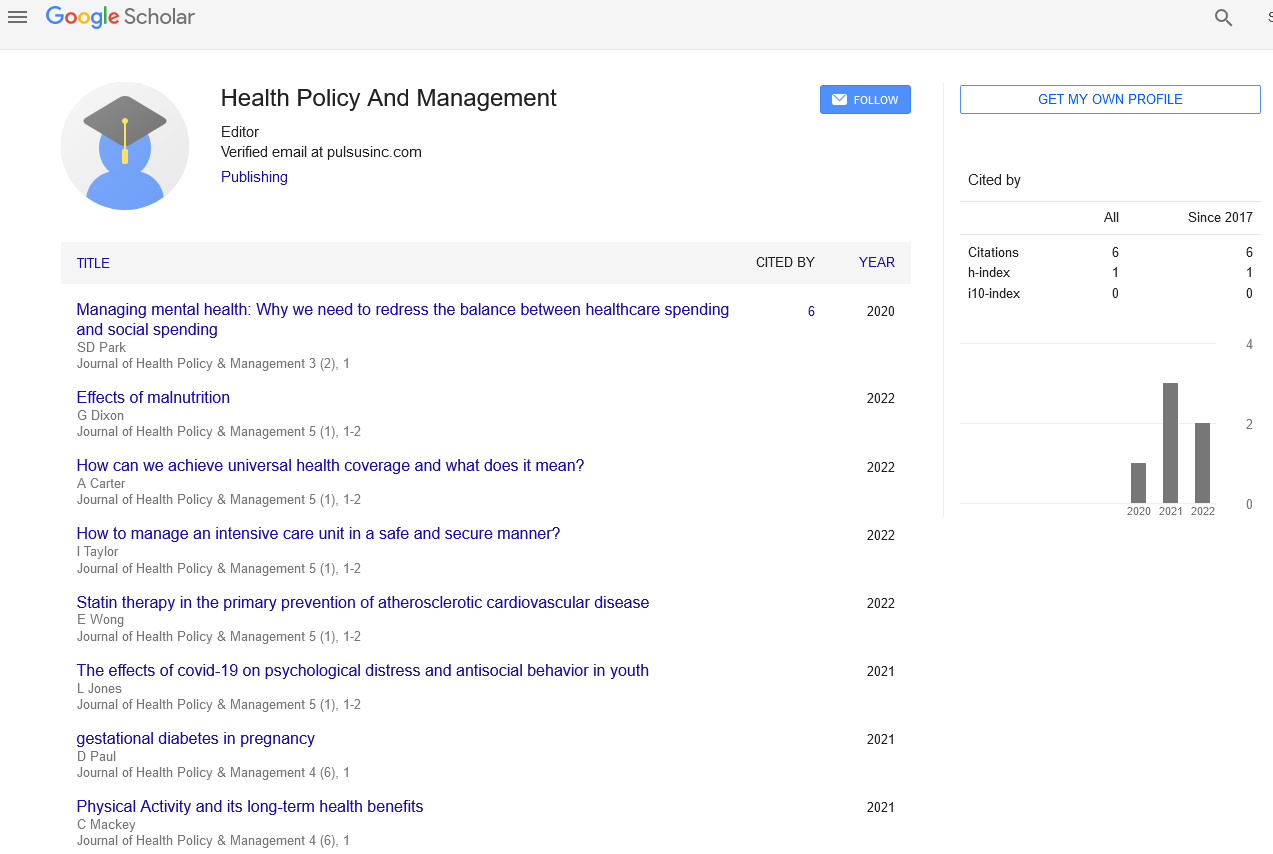Pluriversal literacies: Affect and relationality in vulnerable times: A brief review
Received: 15-Sep-2020 Accepted Date: Sep 30, 2020; Published: 05-Oct-2020
Citation: Mia P. Pluriversal literacies: Affect and relationality in vulnerable times: A brief review. Health Pol 2020;3(1):21.
This open-access article is distributed under the terms of the Creative Commons Attribution Non-Commercial License (CC BY-NC) (http://creativecommons.org/licenses/by-nc/4.0/), which permits reuse, distribution and reproduction of the article, provided that the original work is properly cited and the reuse is restricted to noncommercial purposes. For commercial reuse, contact reprints@pulsus.com
Abstract
The article, “Pluriversal Literacies: Affect and Relationality in Vulnerable Times”, published in Reading Research Quarterly (doi:10.1002/rrq.312), is an exploration of literacies as they manifest in very different contexts of the world, and the policy and practice that supports or impedes them. Literacies describe the very basis of meaning making through the multiple ways we engage with texts, materials, and semiosis.
Keywords
Pluriversality; Ontology; Sustainable development; Environmental degradation.
Description
Pluriversality is a concept that emerges from a decolonial movement of thought that provides a counter-narrative to “a hegemony of modernity’s one-world ontology” [1]. The “one-world ontology” manifests in terms of universality; and yet, the version of “universality” that prevails today, is a Western one. Pluriversality therefore is a decolonial concept that can be applied to research and theory in education, sustainability, and equity studies. This decolonial perspective is taken up in this project to shift literacies theory decisively towards a pluralistic approach, and away from western-centric orientations of the discipline.
On an international level, literacies are overwhelmingly leading the charge for well-intentioned educational initiatives supporting sustainable development. UNESCO’s (2015) Sustainable Development Goal 4.6 states, “By 2030, ensure that all youth and a substantial proportion of adults, both men and women, achieve literacy and numeracy” (p: 19). The detail of Sustainable Development Goal 4 clarifies a particular focus on functional literacy and numeracy skills [2]. The article provides a critical analysis of functional literacy as it derives from a history of autonomous and socio-cultural literacy models. This prevailing understanding of literacy has been reflected in international reporting, such as by UNESCO (2016), OECD (2016), and the World Bank, whereby populations are assessed for literacy (or illiteracy) according to functional abilities to read and write in various contexts.
Moving through local and global contexts of literacy policy, education, research, and pedagogies, I am struck and overwhelmed by a disconnection between the wholeness and intra-action of the world, its people, places, materialities, vitalities, and the literacies that we increasingly lean on, prescribe, and teach to function in it. The blunt tools of reading, writing and numeracy (progressively in a decreasing number of colonial languages) appear as the tools not of development and learning but of epistemic violence [3,4]. In spaces of vulnerability (geopolitical and/or economic), the narrowest versions of literacy dominate, driven by the aid and directives of those with economic and political power.
Conclusion
My purpose in this article is to highlight the contingency and contentious aspects of print language-focused functional, sociocultural, and humancentered approaches to literacy education. In doing so, I describe and demonstrate the practical and political implications of affect theory and relationality in literacy education in a plural world. I use distinct examples of data that span global North and South contexts of research to illustrate the theoretical and practical need and possibility of this approach. I challenge global constructions of functional literacy education as Eurocentric and neocolonial, effectively supporting a pedagogy that normalizes certain practices and people [5] and by extension, sustaining inequity and environmental degradation.
Environmental degradation is creating unprecedented socio-economic vulnerabilities, primarily for those already marginalised and current literacy education is insufficient to mitigate this unjust trend in our collective futures. Sustainable and equitable futures depend on literacies in relation to ecological and global factors.
REFERENCES
- Escobar A (2018) Designs for the pluriverse: Radical interdependence, autonomy, and the making of worlds. Duke University Press.
- World Educators Forum. Education 2030: Incheon Declaration and Framework for Action: for the Implementation of Sustainable Development Goal 4: Ensure Inclusive and Equitable Quality Education and Promote Lifelong Learning Opportunities for All. United Nations Educational, Scientific and Cultural Organization. 2016.
- De Lissovoy N. Decolonial Pedagogy and the ethics of the global. Discourse. 2010;31(3):279-93.
- Spivak GC. Can the Subaltern Speak? In: Williams P, Chrisman L (eds) Colonial discourse and post-colonial theory. New York, Columbia University Press, London, 1994. pp: 66–111.
- Patel L (2011) Decolonizing educational research: From ownership to answerability. Routledge, USA.





